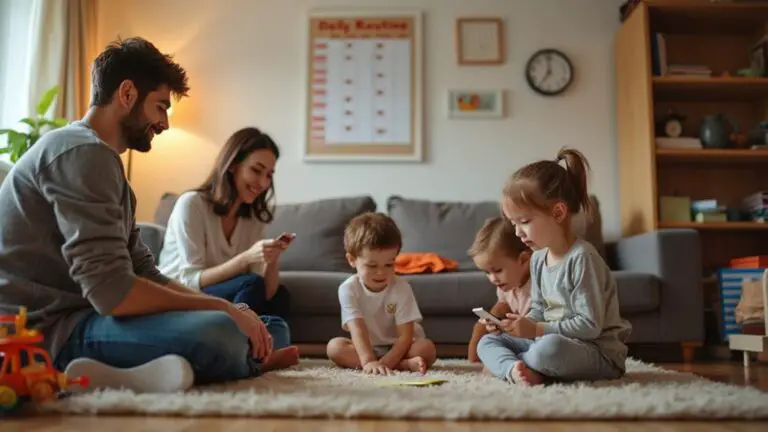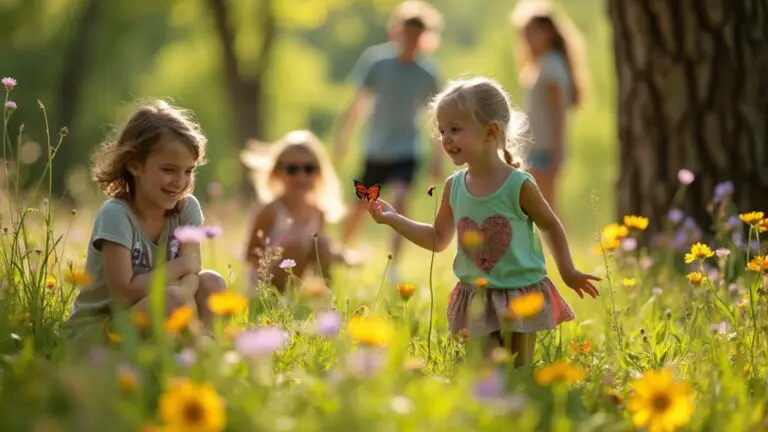The Role of Exercise in Child Development
As a parent and health educator, I've witnessed firsthand the transformative power of exercise in children's lives. It's not just about keeping kids fit; it's about shaping their entire future. I've seen sedentary children blossom into confident, energetic individuals through the simple act of regular physical activity. But there's more to this story than meets the eye. Exercise isn't merely a physical endeavor—it's a catalyst for cognitive growth, social development, and lifelong well-being. The question is: how deep does this impact really go, and what can we do to harness its full potential for our children's benefit?
Key Takeaways
- Exercise is crucial for physical development, improving cardiorespiratory fitness, bone density, and muscle growth in children.
- Regular physical activity enhances cognitive function, academic performance, and executive skills in young learners.
- Participation in sports and active play develops social skills, teamwork, and emotional regulation in children.
- Early engagement in diverse physical activities establishes lifelong healthy habits and reduces adult obesity risk.
- Exercise improves coordination, motor skills, and fundamental movement patterns essential for child development.
Physical Benefits of Exercise
From an early age, exercise plays an essential role in a child's physical development.
I've observed that regular physical activity greatly improves children's health, particularly their cardiorespiratory fitness. It's fascinating how exercise strengthens their hearts and lungs, setting the foundation for lifelong well-being.
I've noted that weight-bearing activities are important for bone density and muscle development, reducing the risk of future osteoporosis.
What's more, I've seen how exercise aids in weight management, potentially cutting adult obesity risk by 30%.
I'm particularly impressed by how various physical activities enhance coordination and motor skills, helping children master basic movements more quickly.
It's clear to me that exercise is fundamental for establishing strong bone mass and overall physical resilience in children, supporting their long-term growth and health.
Cognitive Growth Through Movement
Exploring the cognitive benefits of exercise reveals a fascinating interplay between physical activity and mental growth in children. I've found that engagement in physical activities markedly enhances cognitive development and academic performance. Studies show that structured physical activities improve children's concentration and focus, leading to better classroom behavior and learning outcomes.
| Cognitive Domain | Impact of Exercise |
|---|---|
| Executive Function | Enhanced self-regulation |
| Memory | Improved retention |
| Language Skills | Increased literacy |
Active learning experiences, which integrate movement skills into educational practices, strengthen neural networks and promote overall cognitive development. I've observed that children who participate in regular physical activity demonstrate improved executive function and self-regulation. The CDC emphasizes that physically active children are more likely to excel academically, with research indicating a positive correlation between physical fitness and classroom performance. This evidence underscores the essential role of exercise in fostering cognitive growth through movement.
Social Skills and Teamwork

While cognitive benefits are significant, exercise also plays a vital role in developing children's social skills and teamwork abilities. I've observed that engaging in physical activities, especially team sports and active play, provides children with invaluable opportunities to enhance their communication and cooperation skills. Through these experiences, they learn to work together, solve problems collaboratively, and resolve conflicts.
I've noticed that children who participate in organized sports often exhibit improved self-esteem and confidence, which positively impacts their social interactions.
Additionally, outdoor play and rough-and-tumble activities contribute to emotional regulation and social bonding. These forms of exercise foster a sense of belonging and community among children, helping them build positive relationships with their peers.
Establishing Lifelong Healthy Habits
Early childhood experiences lay the groundwork for lifelong health habits, and exercise plays a vital role in this foundation. I've seen how regular physical activity in children can reduce obesity risk by 30% in adulthood. Unfortunately, only 24% of kids aged 6-17 meet daily exercise recommendations. It's essential to foster active lifestyles early on, as competence in fundamental motor skills correlates with continued engagement in exercise.
| Age Group | Daily Activity Goal | Benefits |
|---|---|---|
| 6-17 years | 60 minutes | Obesity prevention |
| All ages | Varied activities | Improved motor skills |
| Families | Active together | 3x increase in child's activity |
Parental involvement is key. When parents model active behaviors, children are three times more likely to maintain healthy habits. By encouraging diverse, enjoyable physical activities, we're not only promoting immediate health benefits but also reducing chronic disease risks in the long term.
Conclusion
I've seen firsthand how exercise shapes children's lives. It's not just about keeping fit; it's a powerful tool for overall development. I believe that by encouraging kids to stay active, we're setting them up for success in all areas of life. From stronger bodies to sharper minds and better social skills, the benefits are clear. Let's make exercise a fun, daily habit for our children – it's an investment in their future.







